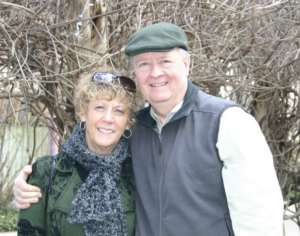But as the believers rapidly multiplied, there were rumblings of discontent. The Greek-speaking believers complained about the Hebrew-speaking believers, saying that their widows were being discriminated against in the daily distribution of food. So the Twelve called a meeting of all the believers. They said, “We apostles should spend our time teaching the word of God, not running a food program. And so, brothers, select seven men who are well respected and are full of the Spirit and wisdom. We will give them this responsibility. Then we apostles can spend our time in prayer and teaching the word.”Everyone liked this idea, and they chose the following: Stephen (a man full of faith and the Holy Spirit), Philip, Procorus, Nicanor, Timon, Parmenas, and Nicolas of Antioch (an earlier convert to the Jewish faith). These seven were presented to the apostles, who prayed for them as they laid their hands on them. So God’s message continued to spread. The number of believers greatly increased in Jerusalem, and many of the Jewish priests were converted, too. — Acts 6:1-7 (NLT)
There is a backstory to this moment. Just before this scene in chapter six, a group of apostles — the ones who had been in Jesus’ inner circle — had just been grilled by religious leaders about their activity, then flogged and told never to speak in the name of Jesus again. Walking away from that ordeal, they rejoiced not that they’d escaped alive but that they’d been counted worthy of suffering disgrace for the Name.
(I remember years ago Bishop Lyndsey Davis telling a story about meeting a woman who was 103 years old. He asked her, “What is the best thing about being 103?” She said, “Well, there’s not a lot of peer pressure.” There’s something to be said for that way of life — for rising above the pressure to conform. And here are these followers of Jesus, walking away from a beating just happy that they get to do this very counter-cultural, radical, unpopular thing, in the name of Jesus.)
Though they’d been told not to, they walked right back into the Church, only to find out when they got there that a spat had broken out.
Because this is what we do in church. Can I get an amen?
The Hellenists were picking a fight with the Hebrews because the Hebrews seemed to be treating the Greek widows unfairly in their meal program. This is what happens when we get tired, overworked, don’t have bandwidth to give our best selves. Beaten and battle-weary themselves, the apostles called the community together and used the moment to better define what makes the church the Church and what makes a leader spiritual. They said, “We apostles should spend our time teaching the word of God, not running a food program. So select seven men who are well respected and are full of the Spirit and wisdom. We will give them this responsibility. Then we apostles can spend our time in prayer and teaching the Word.”
That last phrase makes this moment an important one. Faced with limited bandwidth and a desire to operate as a movement in a healthy way, the apostles themselves described the center and priority of an apostolic ministry in this way — in prayer and teaching the Word. And this was at the dawn of the Christian movement when the Church was just forming, when it was being persecuted but also growing like crazy. In that spiritual atmosphere, the disciples saw not only God’s vision for apostolic ministry but also the immense danger of taking their eyes off that vision because of some pressure by some group or another to fill some need that anyone else in the Church could fill … or maybe that no one could fill to everyone’s satisfaction.
Keep in mind that this is straight out of Acts. “Prayer and teaching the word are the center of what we do. That’s apostolic ministry. And the rest of it belongs to the people.”
As a freshly minted Bishop in the Global Methodist Church, I have to ask myself: How does that definition stack up against what I do most of every day? A dozen zoom meetings and phone calls, endless emails and texts (Microsoft has mistaken my email volume for that of a spammer; I say that with a mix of pride and shame). More time is spent raising funds for emerging ministries and arranging for travel and more travel. It is all remarkably good, and I would say it is all important. Much of what bishops do makes the rest of it work. But does our work fall inside the definition of apostolic activity?
I believe the office of bishop in the GMC is meant to be an apostolic office, an exercise in true spiritual leadership. And the apostles in Acts remind me that as the months tick by, we as an Assembly are building culture by the activities we choose. If we want to distinguish ourselves from what we’ve known, then taking stock of how we spend our time is a good buffer against mission drift. Prayer, the apostles teach us, is an apostolic activity. It is also one of our stated values in the covenant this assembly of bishops made with each other. We committed together to “dedicate a portion of each gathering to concentrated prayer for the Church and our work.” That was a good call on our part, and very apostolic. But how do we do that in an intentional, even measurable way?
Taking a page from the Salvation Army playbook, I have suggested that we spend time during each meeting praying for a different annual conference each week. The GMC’s prayer team has accepted the challenge to coordinate that effort. They will solicit prayer requests from Conference Superintendents and regional prayer coordinators, then pass those onto our bishops we can we pray. And the Communications Office has agreed to distribute those same requests so everyone in our connection can pray in agreement over the expressed needs.
Prayer is an apostolic activity; so is teaching the Word. This is also the mandate for the Assembly of Bishops. The Book of Doctrines and Discipline calls on bishops to “to guard, transmit, teach, and proclaim, corporately and individually, the apostolic faith as it is expressed in Scripture and tradition and understood from a Wesleyan perspective … and to reclaim and exercise the historic teaching office of the episcopacy…”
Teaching and guarding the faith are apostolic activities. Our assembly has begun accumulating a list of topics on which we’d like to begin preaching and teaching. We haven’t yet formed our plan for how those teachings will happen consistently, but we are committed to creating content that reclaims our historic faith and guards against mission drift.
In Acts chapter six, once the apostles came up with a plan to get the details in other hands, they could return to what they were convinced was their primary responsibility.“We apostles can spend our time in prayer and teaching the word.” The very next verse, after the resolution of this conflict is announced, begins with these words: “Everyone liked this idea.” And the scene concludes with, “God’s message continued to spread. The number of believers greatly increased in Jerusalem, and many of the Jewish priests were converted, too.”
Prayer and the ministry of the Word are apostolic activities. I trust our Assembly of Bishops will emphasize that work. And the works of compassion, the meat of ministry, belong to the people. What power is unleashed when everyone is serving according to their gifts and call.








